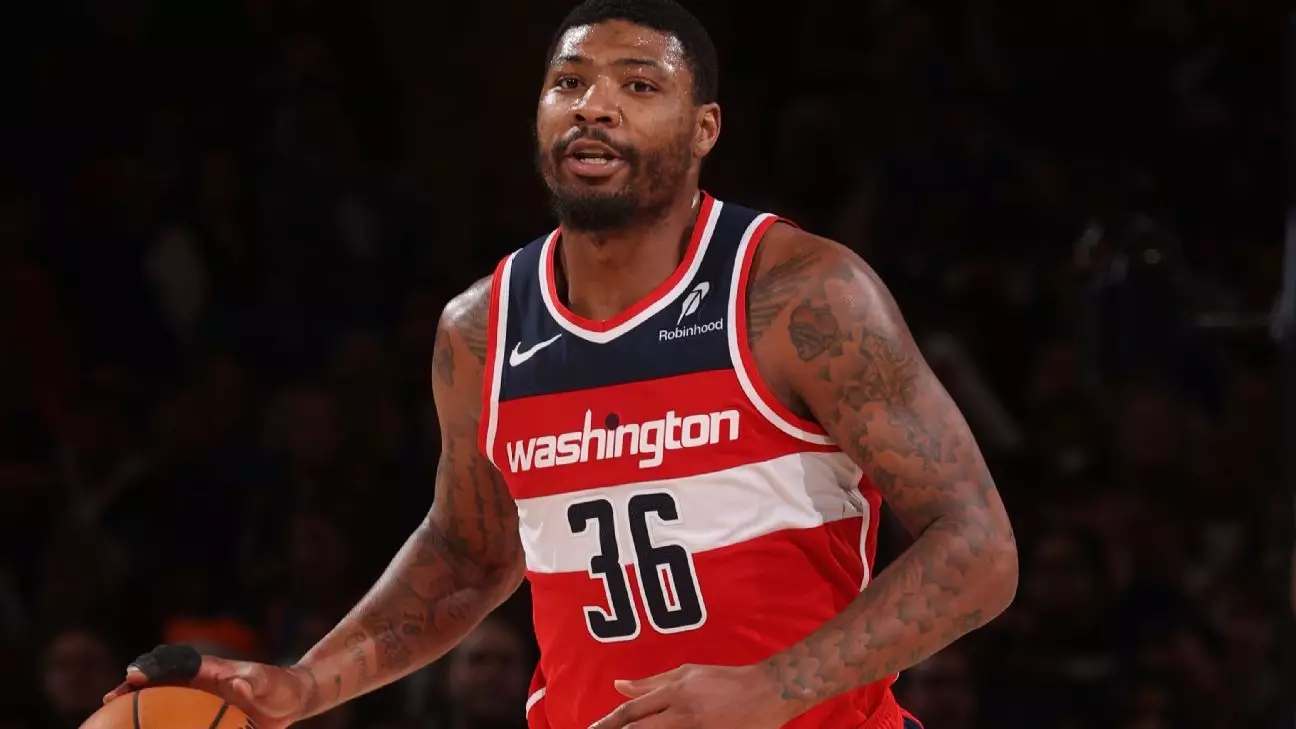In a world where sports and fans intertwine in a complex web of emotion and admiration, it is crucial to understand the delicate balance of respect that governs this relationship. The recent incident involving Marcus Smart, former Boston Celtics player and current Washington Wizards guard, illustrates just how easily that balance can tip into chaos. During a game at TD Garden, a fan’s heckling crossed an invisible line, leading to a dramatic scene that became a hot topic of discussion. It was not just a moment of on-court turmoil; it shed light on the larger issue of boundaries in fan behavior and what it means for athletes today.
Smart, who bled green for nine long years with the Celtics, found himself in a difficult position when a fan began verbally assailing the Wizards’ bench. His passionate response reflected not only his own pride and history with the Celtics, but also the inherent challenge millions of athletes face when confronted by the cruel and sometimes outrageous demands of a fanbase. To his credit, Smart addressed the situation by signaling security and trying to defuse the confrontation before it escalated further. Such an admirable stance demonstrates leadership and self-awareness, traits that undoubtedly shaped his NBA journey as a beloved player in Boston.
A Fan’s Right or a Player’s Dignity?
The debate over fan engagement often centers on a fundamental question: to what extent does a fan have the right to express their feelings during a game? Is heckling a time-honored tradition, or does it represent a violation of a player’s dignity? Marcus Smart’s experience adds a complex layer to this discussion. He argues, “He just crossed the line. We all know, I don’t do line crossing.” His reaction highlights a critical aspect of his identity—we often expect our sports stars to navigate the emotional minefield of public performance flawlessly while also remaining under the public microscope.
From a center-left liberal perspective, it’s essential to advocate for accountability—both from the athletes and the fans. While Smart deserves respect as an athlete and as a human being, it’s equally important to recognize the environments that allow disrespectful behavior to flourish. Sports arenas should be havens for dedicated fans to share their passion for the game without belittling the people who partake in it. As we push for more inclusive and positive atmospheres, we must also hold individuals accountable for their behavior, so that respect becomes the foundation on which this relationship is built.
The Emotional Terrain of Returning Home
Marcus Smart’s return to Boston as a member of the Washington Wizards was laden with emotions, and it’s hardly surprising that fans chanted “We want Marcus!” as he stepped on the court. The love and loyalty Smart felt from his former city reflect the emotional ties that athletes weave with the communities they represent. Yet, the looming specter of a fan crossing the line serves as a powerful reminder that this connection can quickly become a double-edged sword.
During the game, Smart’s acknowledgment of the emotional weight of his homecoming was a poignant display of the deep bonds formed over a decade. His reflections reveal the human side of professional athletes, which is often overshadowed by commercial interests and competitive narratives. These narratives create an expectation of unwavering success and portray athletes as superhuman figures when, in fact, they share many of the same vulnerabilities that we all do.
Leadership Beyond the Court
In a broader context, Smart’s situation raises important questions about the role of leadership not just in sports teams, but in society. As he transitions into the Wizards’ locker room, where he is recognized for his leadership skills, it becomes clear that his influence transcends just his statistical performance. The dynamics of mentorship among younger players reflects the kind of community and responsibility Smart cultivated during his time in Boston.
Once a player is familiar, their contributions are often measured by the impact they have both on and off the court. The Wizards’ coach Brian Keefe recognized this by stating that Smart has been “terrific” in fostering a positive environment in a young locker room. Such recognition is crucial; it underscores the importance of emotional intelligence in leadership positions, whether in sports or any other arena.
In an age where sports fan culture continues to evolve—sometimes for the better and sometimes for the worse—Smart’s incident resonates as a call to action. It implores fans and athletes alike to foster a culture of mutual respect, reminding everyone involved that there are lines that are not just meant to be crossed; they are meant to be respected.



Leave a Reply